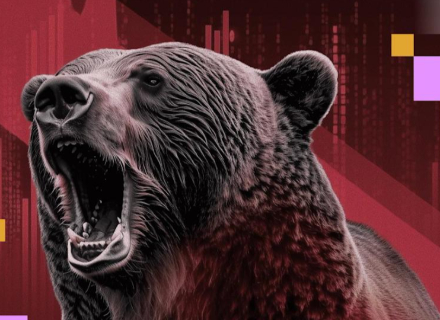South Korea Maintains Stance Against Crypto ETFs Despite US Spot Bitcoin ETF Approval
According to the FSC, South Korea maintains strict regulations on crypto to stabilize the financial market and protect investors.
In the wake of the recent approval of spot Bitcoin exchange-traded fund (ETF) by the U.S. Securities and Exchange Commission (SEC), the South Korean government has reaffirmed its commitment to maintaining the ban on such products.
South Korean regulators assert that there will be no policy shift, and cryptocurrencies will not be recognized as financial assets.
Financial Stability and Investor Protection
South Korea has consistently held a stringent stance on cryptocurrencies since 2017, prohibiting financial institutions from investing in these digital assets. The Financial Services Commission (FSC) emphasized that this approach aims to stabilize the financial market and protect investors.
An official from the Financial Services Commission reiterated the country’s commitment to stabilizing the financial market and protecting investors, stating,
“The government has consistently maintained the principle of prohibiting financial institutions from investing in virtual assets in order to stabilize the financial market and protect investors.” He further added, “There are no changes in our stance.”
Although futures ETFs have been allowed in the States and spot Bitcoin ETFs already operate in countries such as Hong Kong, Germany, Canada, and now the U.S., the South Korean official indicated that these developments are not new or surprising.
Legal restrictions in Korea also make launching a virtual asset ETF impossible, as the Capital Markets Act only lists financial investment products, currencies, and general merchandise as eligible underlying assets for ETFs.
South Korea Cites Stability Concerns
Furthermore, financial authorities in South Korea oppose amending the law to include cryptocurrencies as underlying assets for ETFs. They argue that the U.S. financial sector was able to withstand the collapse of the virtual asset market because it also prohibits financial institutions from investing in them.
SEC Chairman Gary Gansler has clarified in a statement that the decision to approve the spot Bitcoin ETF was “limited to cash exchange-traded products (ETPs) holding Bitcoin” and “does not signal an intention to approve listing standards for virtual asset securities.”
Despite this regulatory stance, Kim Jun-woo, CEO of CrossAngle, suggested introducing a spot Bitcoin ETF, citing low volatility.
He noted, “In a situation where the legal basis for regulation has disappeared, the only difference is whether to do it preemptively or reluctantly follow along.”
Disclaimer: The content of this article solely reflects the author's opinion and does not represent the platform in any capacity. This article is not intended to serve as a reference for making investment decisions.
You may also like
This Week's Preview: BTC Falls Below 94,000, AI "Judgment Day" and Macro "Settlement Day" Both Looming
Bitcoin and Ethereum prices have declined as the market adopts a risk-off approach ahead of the upcoming Nvidia earnings report and the release of the Federal Reserve minutes. Nvidia's earnings will influence the AI narrative and capital flows, while the Fed minutes may reinforce a hawkish stance. Summary generated by Mars AI. The accuracy and completeness of this summary are still being iteratively improved by the Mars AI model.

The Ali Qianwen app's initial launch faces a surge in traffic; the official response is "operating well, feel free to ask."
The public beta of the Qianwen app has been launched, with Alibaba introducing its personal AI assistant to the consumer market. The first day’s traffic exceeded expectations, and some users experienced service congestion. “Alibaba Qianwen crashed” quickly trended on social media, but the official response stated that the system is operating normally.

Another giant exits! The "Godfather of Silicon Valley Venture Capital" sells all Nvidia shares and buys Apple and Microsoft
Billionaire investor Peter Thiel has revealed that he has fully exited Nvidia, coinciding with rare simultaneous retreats by SoftBank and "Big Short" investor Michael Burry, further intensifying market concerns about an AI bubble.
How to evaluate whether an airdrop is worth participating in from six key dimensions?
Airdrop evaluation is both an "art and a science": it requires understanding human incentives and crypto narratives (art), as well as analyzing data and tokenomics (science).

